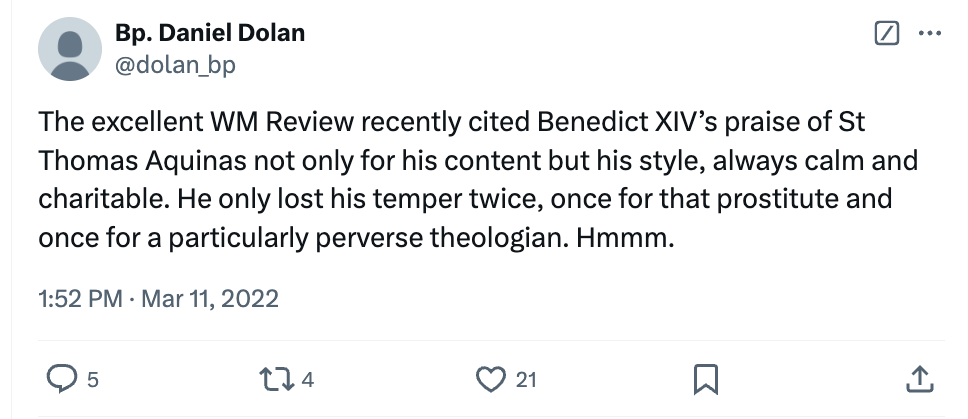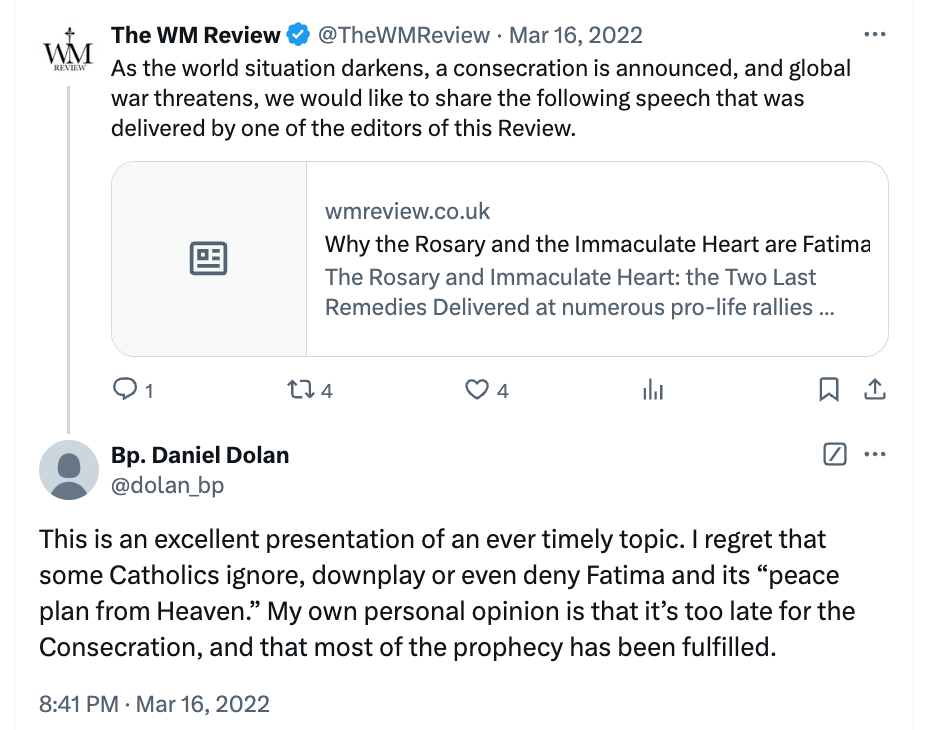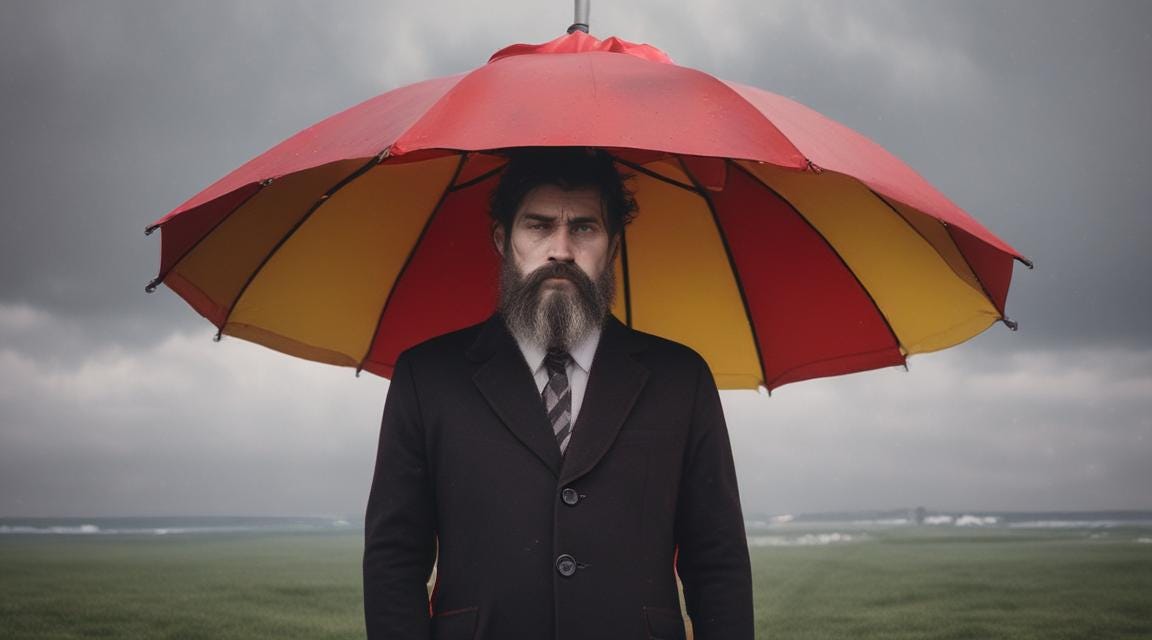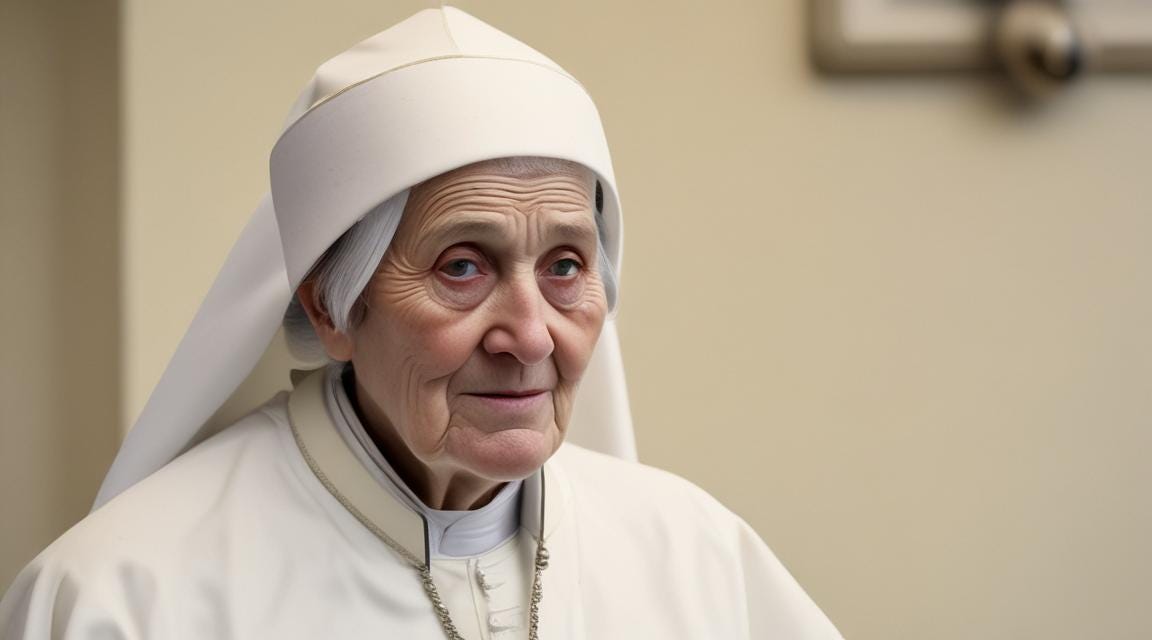What we've been up to in 2024—and plans for 2025
The WM Review's biggest, best year yet—but only a shadow of what's to come in 2025. Take a read of what we've been up to, our plans, and what our subscribers have been saying.
The WM Review's biggest, best year yet—but only a shadow of what's to come in 2025. Take a read of what we've been up to, our plans, and what our subscribers have been saying.
Dear Readers and Friends of The WM Review,
Some Catholics feel no need to think about the deeper questions of our day.
They are not troubled by the crisis in the Church. They do not feel the force of the problems raised by the Francis pontificate, let alone the religious revolution which has taken place since Vatican II. They are satisfied with some of the more simplistic explanations, and are not interested in delving into the issues.
Our mission is not to such persons—although we wish them well, and hope they enjoy what they find here.
Our mission is to those who feel unable to continue as Catholics, because of the challenges posed by this crisis, and are on the brink of losing the faith.
The WM Review exists to help Catholics understand why and how to keep the faith in the current crisis in the Church.
Unfortunately, we regret to say that apostasies are becoming more frequent, and closer to home.
For example, we are noticing a continuing attrition amongst friends of friends, or even some personal friends.
This terrible phenomenon is only going to get worse, following the latest enormities coming out of Rome.
Perhaps you know of some who have lapsed from the faith.
Perhaps you know of some who might never have had the faith in the first place—instead were simply aligning themselves with the Church because they thought Catholicism was “based” and aligned with their own prior opinions.
While many of those who converted under the Covid regime are still with us, the falling-away continues. That’s because many of our co-religionists are simply sitting ducks.
The WM Review exists to help all these persons to keep the faith. The way we do this is by…
Carefully and soberly presenting the case for a theological approach to the crisis in the Church
Translating important texts and getting the right ideas out to those who need them
Publishing an eclectic and eccentric array of other materials to nourish the mind, soul and heart
Maintaining personal contact with subscribers, readers and enquirers where possible
Providing FREE memberships to clergy/seminarians (please subscribe and reply to the email if this applies to you.)
There is so much low-quality and misleading material circulating online, especially in video format. It is more vital than ever that our level-headed Catholic essays and resources are available for free.
Becoming a paying monthly or annual subscriber is a crucial way which you can help us fulfil our mission—to “strengthen what remains”:
This goal is why we established The WM Review four years ago, in the summer of 2021.
The WM Review is overseen by S.D. Wright and M.J. McCusker. The late Bishop Daniel Dolan greatly encouraged us in the first year of our operation—the last of his life.
Over the last year, priests of different traditionalist “stripes” have encouraged us in our work.
Here’s what some of them have said of The WM Review—each shared with the consent of those who wrote them, and anonymised for the sake of their privacy:
“You have the most reliably dispassionate and objective analysis of the most crucial issues facing the Church in this unprecedented crisis. Your essay on the authentic Catholic response to legitimate private revelations was, simply put, marvelous—more than worth the price of admission.”
Father A.
“Yours is the best site in existence. No doubt.”
Father B.
“Sober, prudent, thoughtful commentary, which avoids the sensational and is quite lacking today, and it is always refreshing to find it.”
Rev. Mr. C., Seminarian
“Reflecting on the numerous articles published in 2024, various praises come to mind. Fidelity to the Roman method in the study of Catholic Doctrine. Knowledge of Scholasticism; balance between the use of Revelation, sacred Magisterium, theologians and of relevant historical data; true clarity; prudence.”
Mr D., seminarian.
Our intention for 2025 is to nurture these important relationships with the clergy.
At the start of 2025, Fr William Jenkins of the Society of St Pius V (and the popular YouTube channel What Catholics Believe) has said of our work on a particular topic:
For those who are concerned enough, interested enough, to do some research, going to The WM Review would be a good place to start, and read what they have to say there. I must say, I find it thoughtful and compelling.1
(More on that particular topic below.)
Another intention is to repair and rebuild any relationships which may have been damaged in various ways.
Even if we can’t all agree about everything, or can rub each other up the wrong way, we can at least try to be good neighbours—even to those with whom we have clashed in the past.
We may be on the brink of a true breakthrough in the crisis in the Church, and so the time for animosity is over.
But it is not just the clergy. Some of our cherished and greatly appreciated monthly and annual subscribers also gave the following testimonials, when asked why they subscribed:
“The WM Review help to provide both clarity and hope during the crisis in the Church. Seeing so many facing confusion and hoping they'll discover this great resource.”
“Excellent thought-provoking material”
“They know what they are talking about and do not compromise.”
“The clarity and charitable tone of the writing.”
“I support your work because it sets out the right questions to the crisis of our day, very charitably and eloquently answers some of the tough questions traditionalists (especially former recognize and resist Catholics such as myself) have in speaking on these important matters of the faith. The traditional Catholic theology and ecclesiology is beautiful, thank you for presenting it!”
(No, thank you for supporting our presentation of it.)
Without our monthly and annual subscribers, it would be impossible for this project to continue.
If you value what we are doing with The WM Review, and would like to see it continue, then please consider joining this cherished band of brothers (and sisters) today:
Breakthrough changes in 2024
2024 has been a game-changing year for us, in terms of our ways of working, the level of our output, and success in reaching readers.
In March 2024, we began using Substack in order to reach new readers beyond our core website following. This move quickly proved extremely fruitful, massively increasing both our reach and the depth of our engagement with a broader Catholic (and even non-Catholic) readership.
Because of this, we ceased operations at the old address, and transferred all our material here, at the new address of wmreview.org. Since then…
Our average weekly views are now about triple what our average monthly views were before the switch. That means weekly views are about twelve times as many views as before.
Our email list has also more than tripled since March 2024, having been fairly constant from 2021-3
The number of our published articles more than doubled in 2024, going from 79 to 168.
Just a few days ago, we were awarded the “Substack Bestseller” title, sending us this message:
“Few things express trust in media better than a paid subscription.
“Your subscribers value your work, and we value that you chose to publish it on Substack.”
This means that the ideas we are presenting—and the solutions to help individual souls keep the faith—are reaching a wider and wider audience.
This round-up is to show you what those ideas and solutions are, and we’ve been up to this year.
Please read this round-up to the end, so that you can see how YOU can help The WM Review to keep things going in 2025 and beyond.
The Theological Virtue of Faith
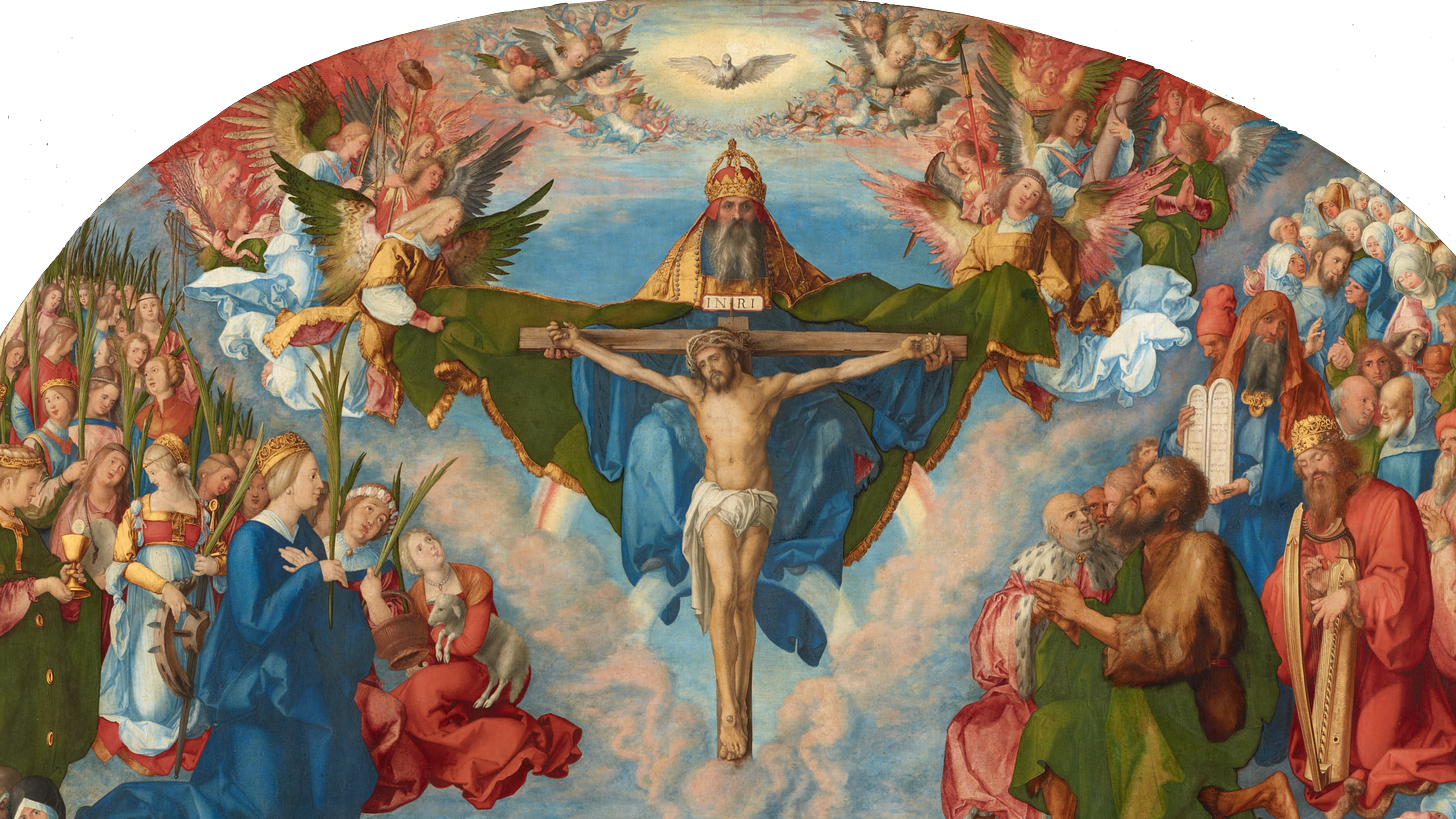
As already mentioned, The WM Review aims to help our fellow Catholics keep the faith during the crisis.
To this end, we have published several articles about the theological virtue of faith. It may be that many who outwardly profess the faith do not actually have the theological virtue of it, because of the defective way in which they adhere to the truths of revelation—namely, as opinions they hold to be true, rather than as what God has revealed and the Church proposed.
For example:
Faith, hope and charity—theological virtues and baptism explained
Faith and Mystery: how to explain the Holy Trinity simply
Divine faith does not admit 'falsification events' for the Church
Fighting against the ‘sanitisation’ of Archbishop Lefebvre
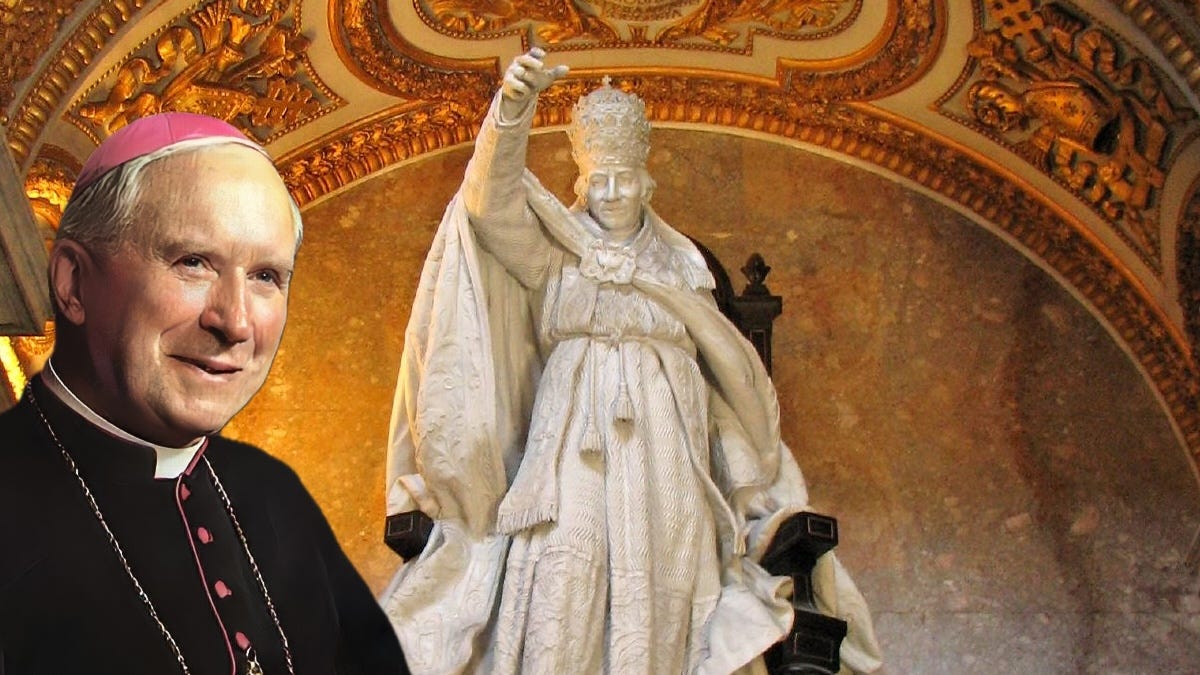
Over the last few decades, many traditionalists have been aware of a “sanitisation” of Archbishop Marcel Lefebvre's legacy—by which we mean a one-sided, revisionist focus on his softer, more “respectful” or conciliatory engagement with the post-conciliar Vatican.
To be sure, Lefebvre was a complex figure who took different positions at different times, according to how he believed providence and prudence wanted him to act. But the one-sidedness is liable to be extremely misleading.
To counter this sanitisation, we translated and published critical lost texts addressing the ongoing crisis, on subjects as controversial as the legitimacy of the post-conciliar claimants to the papacy and the Novus Ordo sacraments.
+Lefebvre: 'Any sensible man must ask' if a heretic is still pope, can discuss with others
'Medieval peasants didn't know the pope's name, why should we care?' +Lefebvre answers
+Marcel Lefebvre's glowing tribute to sedevacantist Fr Henri Mouraux
We also published a three-part study, examining Lefebvre’s approaches to the Novus Ordo sacramental rites.
Archbishop Lefebvre & Conditional Confirmations—His pastoral practice explained
Archbishop Lefebvre & Conciliar Sacraments—Do they 'come from the Church?'
Archbishop Lefebvre & Conciliar Ordinations—Practical Doubt
These texts demonstrate clearly the following three points:
Lefebvre recognised the legitimacy of doubting or rejecting the claims of the post-conciliar popes
Lefebvre recognised the legitimacy of doubting or rejecting the validity of the Novus Ordo sacraments, including holy orders
Lefebvre worked and co-operated with open sedevacantists until the day he died.
The revisionist narrative of the Archbishop along “recognise and resist” lines is completely untenable. The reality is much more complicated.
Preserving sacramental integrity and fighting back against revisionism
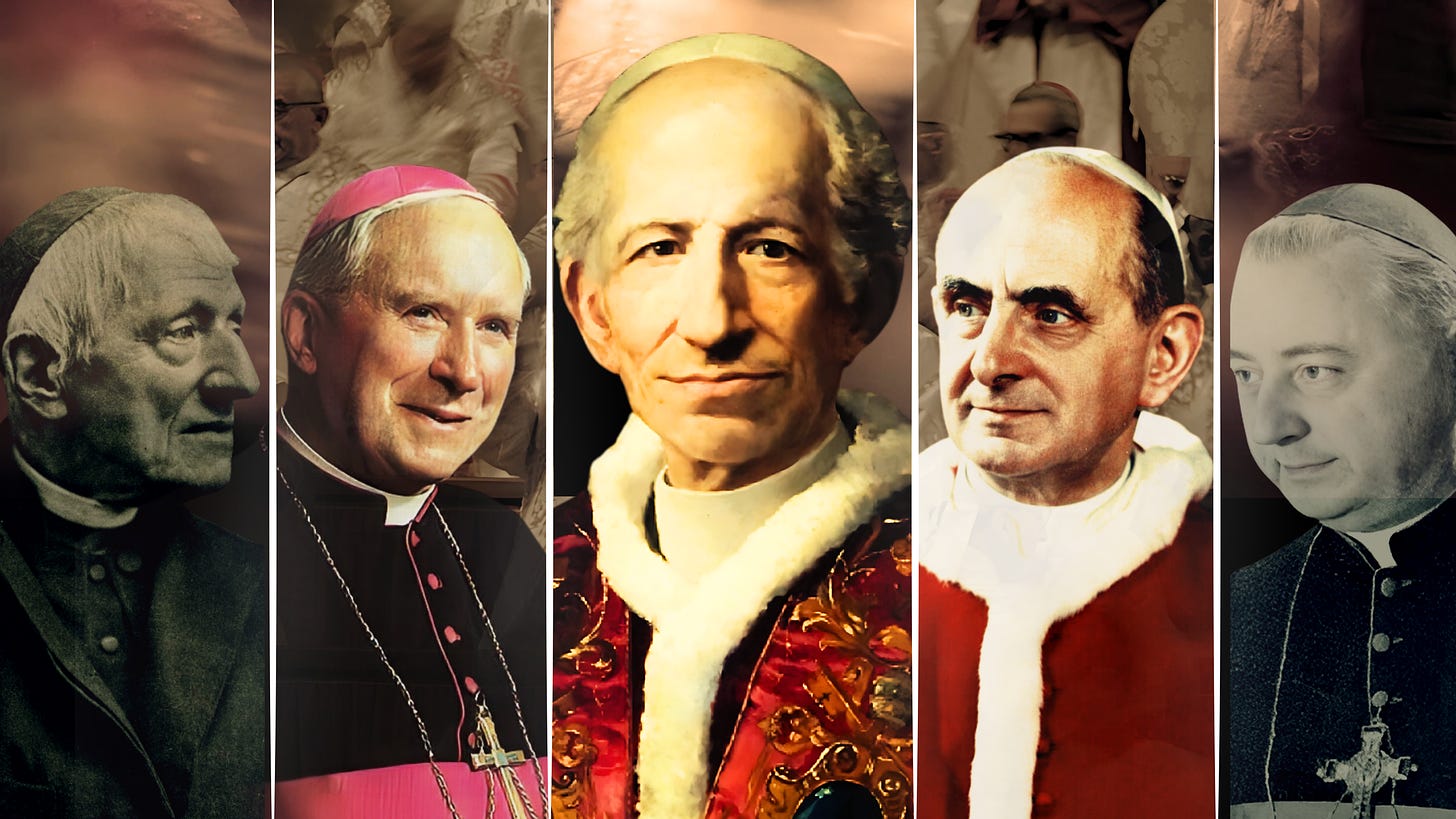
There have always been traditionalists who have accepted the validity of the Novus Ordo sacramental rites, or at least been content to act as though they are valid.
The ascendancy of this faction, and the imposition of their ideas, opinions and practices as normative, poses a grave risk to traditionalists throughout the world.
The reason this is so critical is explained here:
Can we receive doubtfully valid sacraments? (S.D. Wright)
This is why we have dedicated so much energy on this topic since the Summer. The single most focused endeavour in 2024 was the development of our new ‘Valid Sacraments?’ Index of Articles, gathering together a wide range of research, historic precedents, authoritative statements, and practical counsel regarding the validity of the Novus Ordo sacramental rites.
Our overarching thesis is concise yet critical:
THESIS: To preserve sacramental integrity, safeguard the common good, and secure peace of conscience for all, the only possible course is a systematic programme of (at least) conditional ordination/consecration of clerics whose orders depend on the validity of the Novus Ordo rites.
We’ve already mentioned the three-part study into Lefebvre’s approaches towards this issue. Here are some of the other articles:
Are Novus Ordo sacraments valid—and how would we know? (Abbé Hervé Belmont, commentary by S.D. Wright)
Is Paul VI’s New Rite of Episcopal Consecration valid? (Fr Álvaro Calderón, commentary by S.D. Wright)
Cardinal Newman on Anglican orders—applied to Novus Ordo orders (Cardinal John Henry Newman, commentary by S.D. Wright)
In addition, we have been considering the arguments made by traditionalists for and against the thesis above—and thus exposing revisionist ideas around Archbishop Lefebvre supposedly always accepting the validity of the new rites:
‘Paul VI's rite of ordination is invalid, copies Anglican rites’ (Abbé Henri Mouraux, commentary by S.D. Wright)
‘Paul VI's rite of episcopal consecration is invalid’ (Abbé Henri Mouraux, commentary by S.D. Wright)
Classic study admits invalid rites would NOT destroy hierarchy (S.D. Wright)
Classic study calls conditional ordination a 'measure of prudence' (S.D. Wright)
As mentioned, at the start of 2025, Fr William Jenkins SSPV said this of our work on this topic:
I would direct whoever is asking such questions to a site called The WM Review. […]
For those who are concerned enough, interested enough, to do some research, going to The WM Review would be a good place to start, and read what they have to say there. I must say, I find it thoughtful and compelling.2
If you have not yet explored this index, please do so. It is already one of the most popular areas on our site, and we will be expanding it further in 2025 as we are able to produce and translate new texts, commentaries, and historical testimonies.
Explanation and epistemology of the crisis in the Church
Some arguments raised by traditionalists point to true conclusions, whilst cutting off the branch on which they sit.
This is a major contributing factor to traditionalists who lose the faith altogether. It is why they must have access to the modest, theological explanation of the vacant see: when presented properly, this can be their last hope for keeping the faith.
Part of this involves sweeping aside those who are obstructing the clear presentation of the argument with their anxious misrepresentations of what is argued. In defending Francis’ risible claim to the papacy, they are defending liberalism, scandalising the weak, and assaulting the faith of wavering Catholics.
To combat all this, we have been producing and curating explanations of the epistemology of our current crisis.
Could an ‘heretic pope’ impose errors upon the Church? Gregory of Valencia SJ
The Conciliar/Synodal Church is not the Catholic Church – it lacks the necessary marks
The ignoble art of missing the point – the real arguments for Francis' non-papacy
'Denying the known truth' leads to absurdity, spiritual and mental blindness
True & false obedience: Have we misunderstood this basic distinction?
Powerful arguments against traditionalists unintentionally destroyed by Prof. Andrea Grillo
What St Robert Bellarmine really taught about a heretic pope losing office 'ipso facto'
'Anathematise those who teach new doctrines' – St Robert Bellarmine
'Public defection from faith' does NOT require joining a sect for tacit resignation from office
Prof. de Mattei's defence of Francis' legitimacy fails—here's why
‘Universal and peaceful adherence' defence of Francis unavailable to traditionalists
How is the pope the source of jurisdiction? Mgr Fenton explains
Lefebvre’s 1974 Declaration: Tension and Resolution
Bellarmine does not teach councils are necessary for ipso facto loss of office
The Father Coleridge Reader: A New Initiative
The WM Review has long championed the cause of Fr Henry James Coleridge SJ, the nineteenth century English Jesuit and a forgotten hero of English Catholicism.
This year, S.D. Wright launched The Father Coleridge Reader, dedicated to his memory. Fr Coleridge’s works on the Gospels and the life of Christ are a treasure trove of doctrine and devotion. By promoting his memory and legacy, we aim to counterbalance the sentimental and often misleading “mystical” literature prevalent today.
The Father Coleridge Reader is accessible to more Catholics than ever before. His clear, doctrinally rich approach is precisely what the faithful need to navigate these troubled times.
Here are some of our favourite pieces that have been published on The Father Coleridge Reader since it’s launch:
Absolute degradation—the state of the world before Christ
Devil's Seed—Heretics and the parable of the cockle
Doomsday—Christ tells us to hope for it.
In due course we want to get ebooks, audiobooks and real books together for spreading Fr Coleridge’s legacy.
If you’re already subscribed to The WM Review and want to help out further, then have a think about subscribing to The Father Coleridge Reader too:
Notable events in the progression of the crisis in the Church
The WM Review does not focus on the news or the news cycle, unless it cannot be avoided. There were three such events in 2024.
1. Viganò’s Excommunication
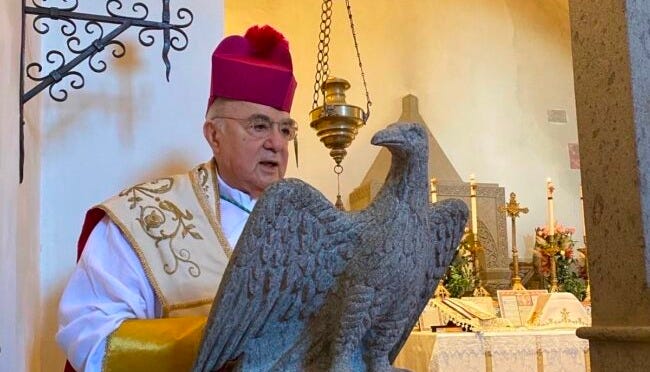
One of the more dramatic events was the so-called “excommunication” of Archbishop Carlo Maria Viganò for the alleged crime of schism.
In response, the Archbishop published a series of statements denouncing heresy in the putative hierarchy and reaffirming the Catholic faith—as well as stating clearly that Francis is not the Roman Pontiff.
Although Viganò’s precise thoughts on the issue of the post-conciliar claimants to the papacy do not seem to be settled, his bold stance has prompted renewed discussions about papal authority, canonical penalties, and the duty to speak out in times of crisis.
+Viganò's declaration in response to Vatican charges of schism – plus subsequent announcement
COUNTER-ACCUSATION: +Viganò accuses Francis of heresy & schism, responds to traditionalist critics
Archbishop Viganò responds to 'excommunication': 'If we had a pope...'
At the start of the year, an account on Twitter claimed—perhaps precipitously, and certainly unconfirmed by the men actually involved—that Viganò “is now conditionally consecrated and is a Bishop of the Resistance with Bishop Williamson.”
We will see, in due course, whether this claim is to be confirmed, but it is certainly of great relevance to our ongoing Valid Sacraments campaign on conditional repetition of the sacraments, particularly holy orders.
2. Francis’ Comments: “All religions lead to God?”
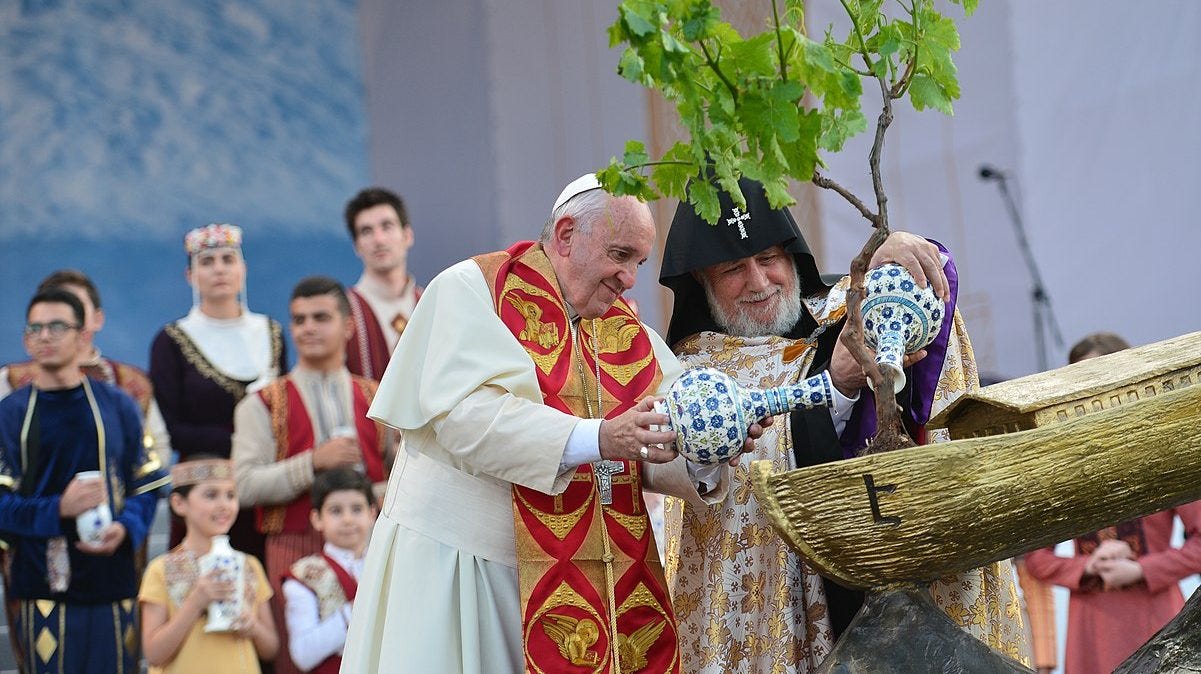
In September 2024, Pope Francis made three statements which broke new ground in the clarity of his defection from the faith. In brief, he stated:
Friday 13 September 2024
“All religions are a path to reach God. […]
“[O]ur religions are languages, paths to reach God. Some are Sikh, some are Muslim, some are Hindu, some are Christian, but they are different paths. Understood?”
Tuesday 17 September 2024
“Contemplate the difference of your traditions like a richness, a richness God wants to be. Unity is not uniformity, and the diversity of your cultural and religious identities is a gift of God.”
Tuesday 17 September 2024 (reported Thur 25 September 2024)
“We need to keep meeting, to weave bonds of fraternity and to allow ourselves to be guided by the divine inspiration present in every faith, in order to join in ‘imagining peace’ among all peoples.”
These comments prompted a whirlwind of commentary on the matter—particularly over Pope Pius XI’s teaching “one who supports those who hold these theories and attempt to realise them, is altogether abandoning the divinely revealed religion.”
Here are some of materials on this astonishing controversy:
It was both amazing and predictable that many defended Francis and his claim to be the legitimate Roman Pontiff.
‘Medieval peasants didn't know the pope's name, why should we care?’ +Lefebvre answers
Prof. de Mattei's defence of Francis' legitimacy fails—here's why
S.D. Wright also appeared on Catholic Family Podcast with Mario Derksen from Novus Ordo Watch:
Around this time, we produced a few YouTube podcasts—but the situation at present is that it is extremely difficult to find a clear period of quiet time, with no background family noise, to record such materials. With a bit of luck, 2025 may be a little quieter than 2024!
(Fat chance…)
3. The death of Bishop Tissier de Mallerais

The passing of Bishop Bernard Tissier de Mallerais was deeply significant.
Bishop Tissier was known for a more hardline stance within the Society of St Pius X (SSPX), and as such his departure leaves a vacuum in the SSPX and the wider traditional milieu.
We published an obituary and reflections on his theological legacy and contributions during this crisis in the Church:
Looking Forward to 2025—Invitation to Join Us
Frankly, we have had enough. Maybe it’s ambitious, but our goal for 2025 is—with God’s grace—nothing less than the complete toppling of the Vatican II revolution and the obliteration of its influence among traditionalists.
This comes through in three key ways:
1. Further Expansions to the “Valid Sacraments” Index
Our work with regards to this controversial issue is far from over. We have many original studies to finish, as well as documents, translations, and historical case studies to prepare and publish. None of this is going to be popular. But this is a hill we’re going to have to die on.
If you value the enormous amount of work we are doing on this subject, and the many texts we are translating and publishing, and if you would like to be a part of this most important fight to safeguard for sacramental integrity amongst traditionalists, then please consider supporting us with a monthly or annual subscription.
2. Strengthening what remains
The advent of the self-titled “Conciliar/Synodal” Church has made many Catholics turn to Eastern Orthodoxy, or a radical embrace of Vatican II.
Others simply abandon even the Christian name, and depart into the darkness of the night outside.
We will continue examining how the classical body of Catholic ecclesiology provides answers for our time—refuting the schisms and heresies of both Eastern Orthodoxy and the Vatican II revolution.
Only through a sound epistemology and understanding of the arguments can Catholics hold fast to tradition today.
Will you be a part of this great defence and support of our Catholic brethren’s faith?
3. Revisiting the revisionists
Those who want to cast St Robert Bellarmine as a conciliarist, or want to paint Archishop Marcel Lefebvre as just another heroic conservative Novus Ordo churchman who got aggravated towards his death, or want to claim that traditionalist groups have always accepted the Novus Ordo sacramental rites are going to have to deal with us.
If you want to be a part of this pushback against those who are co-opting the traditionalist talking points as gatekeepers for the Conciliar/Synodal Church, then join us a monthly/annual member today:
This is to say nothing about the work we are doing behind the scenes, explaining and defending the important theses to those who need to hear them.
We have worked hard this year to produce free, in-depth Catholic resources, responding to urgent questions about the Faith and expanding our reach via podcasts and Substack. With your help, we can keep all our articles and podcast episodes free for everyone who needs them.
But none of this is possible without you and you help.
There are two key ways that you can be a part of this communal effort for the Church and for the Faith:
Subscribe to articles—preferably as a monthly or annual member.
Ensure you never miss the essays, deep dives, and theological resources. By subscribing, you’ll also receive access to members-only content—all while helping us continue offering free articles for readers who depend on us.
Share our material with everyone whom you think will benefit.
Make a commitment today to share each essay with at least one person whom you think will benefit from them—especially to priests and clergy. This is really crucial for helping us get the ideas out there.
You can do this by liking and retweeting the articles, sending links, forwarding emails, hitting “share” buttons or even by “gift subscriptions”—Substack offers nice rewards for those who do this often:
Together, let’s make 2025 the year when Catholics wake up to what’s going on.
Conclusion: ‘Be watchful and strengthen the things that remain’
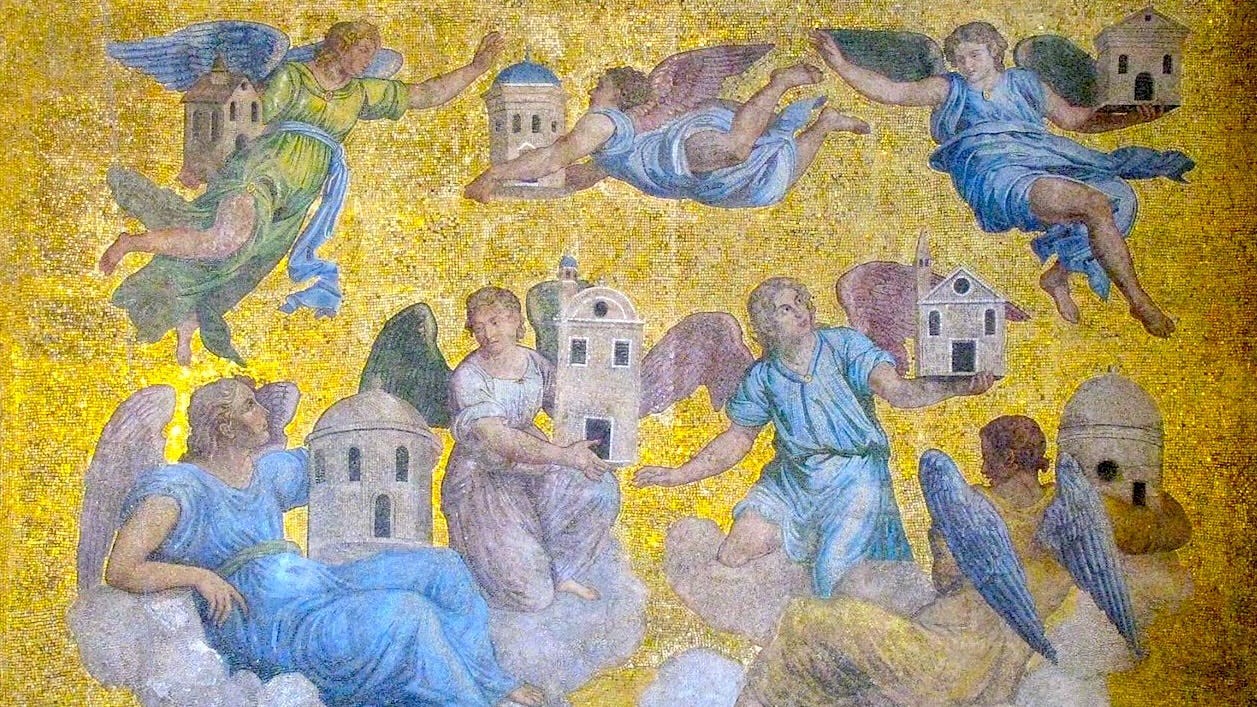
In the Apocalypse, Our Lord warns the Church of Sardis to “strengthen the things that remain, which are ready to die” (Apoc. 3:2). This has never felt more apt, given today’s tribulations. That’s where our motto came from, and this was the subject of a text from Cardinal Billot which we translated earlier in the year:
Seven Ages of the Church—'strengthen what remains'
We know that many Catholics are discouraged or perplexed, and ready to walk out the door. It is our hope that The WM Review continues to be a vital help in keeping minds and hearts fixed on the truth.
Thank you for your prayers, your support, and your dedication to the Catholic faith. May Our Lord and Our Lady guide us all into the coming year with hope, peace, and perseverance.
Yours sincerely,
S.D. Wright
M.J. McCusker
The Editors of The WM Review
PS: One final thanks to the band of brothers (and sisters!) who have supported us financially throughout 2024.
Both editors have many pressures and constraints on our time and headspace, and have to be able to justify what is expended on this project. Your support—through a monthly or annual subscription—truly keeps The WM Review going.
Together, we can “strengthen what remains” by reaching more souls with the clear, uncompromising truths of the Catholic Faith.
To those who are not yet a part of our band of brothers (and sisters!), if you find our work beneficial, then—as we have said—the best way to stay updated with our articles, podcasts (when possible…) and announcements is to subscribe to The WM Review.
Please subscribe today, so that we can continue this vital work without interruption.
PPS: One of our most popular articles in 2024 was this satirical piece…
SUSANVACANTISM: The Spiritual Dangers
If you don’t know about “Pope Susan” yet, then take a read!
Follow on Twitter, YouTube and Telegram:
From What Catholics Believe - 1/3/2025, timestamps 17.05.
From What Catholics Believe - 1/3/2025, timestamps 10.30, 17.05.






